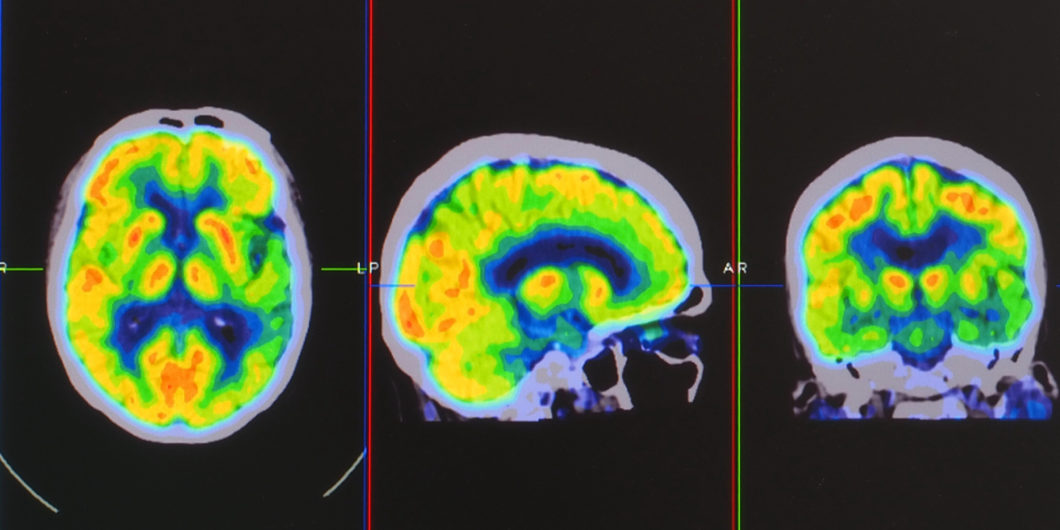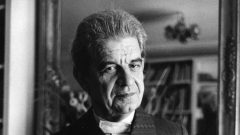It is time for those on the right to start exploring Lacan and use him to theoretically advance conservatism.
The Inescapability of the Soul
“My soul magnifies the Lord,” says Mary, the Mother of God, greeting her cousin Elizabeth in the euphoric encounter that Christians have traditionally referred to as “the Visitation.” Mary’s stirring phrase has echoed across the centuries, inspiring poets and musicians alike (most famously J.S. Bach). The image it summons has a haunting simplicity: this humble Palestinian woman, through God’s providence, has become the lens through which all of mankind will see the face of God. At this point in the Biblical story, we know that her body is already the vessel in which the Word is sheltered. Nevertheless, the subject of Mary’s “magnificat” is not her body. It’s her soul.
What is a soul? Is the concept still meaningful in this age of scientific miracles and wonders? Why, in an era of skeptical materialism, do we still respond so readily to statements like Mary’s? John Cottingham explores these questions in his newest book, In Search of the Soul: A Philosophical Essay.
It takes only a few hours to read this delightful little book, and the payoff is considerable. It is, as the title suggests, a philosophical essay. That won’t appeal to everyone. This, however, is the best kind of philosophy: the sort that will help you die. Less morbidly, it is the sort of book that offers a pleasant respite from the cares of the weary world. Cottingham has spent years perfecting the art of explaining difficult philosophical concepts to the non-specialist reader, and his gifts are certainly on display in this newest work. Though he could not have foreseen it, this one in particular seems to have been released at the perfect time. Reflecting on the soul helps us to remember why life is worth living, even or perhaps especially when it seems oppressively difficult.
Cottingham approaches his subject with the rigor and precision that we expect from a philosopher. Over the course of the book he carefully addresses different camps of skeptics, who for various reasons question the existence of “souls,” at least as understood in the traditional Judeo-Christian sense. Surveying recent literature in philosophy of mind, he explains why a materialist metaphysics doesn’t excuse us from complicated questions about the soul. Even if we start with the assumption that human beings are fundamentally “machines of meat,” consciousness and subjective experience remain as lived realities that must be accounted for in some way. This problem, as Cottingham notes, is quite similar to the one meta-ethicists encounter in their efforts to construct a scientifically respectable theory of moral value. It’s easy enough for a modern skeptic to dismiss Platonic forms, or Thomistic natural laws, as penumbra of archaic metaphysical bogeymen. Once that slate has been cleared, though, we are still left with the task of reconstructing right and wrong from a sadly understocked metaphysical tool kit. Virtually no one is truly willing to dispense with moral value; our intuitions about right and wrong are simply too powerful to ignore. In the end, then, lived experience tends to lead us back to the need for something more metaphysically robust than complex collections of atoms and cells. Souls, as it turns out, are stubborn things.
Turning to psychoanalytic theory, Cottingham considers what may or may not be helpful in the work of Sigmund Freud and Carl Jung. Academic philosophers have often been dismissive of these theorists, but Cottingham believes that they did in fact add something valuable to the early modern conversation, by drawing attention to the complexity and opacityof the human mind. Some thinkers, like David Hume (though not Rene Descartes, at least in Cottingham’s own view), liked to regard human beings as transparent self-interest-seekers, behaving in predictable ways according to circumstance. As Freud and Jung remind us, this is not really true to human experience. Even with (literally) a lifetime of experience under our belts, human beings are not fully transparent—even to ourselves.
We have hopes and fears that we can’t fully articulate, and motives for behavior that are unclear even to ourselves. It is perfectly possible for a person to fulfill all of her explicit life goals, without achieving real happiness, or even a subjective sense of well-being. That complexity points to something morethan a disparate collection of intentions and appetites. Real contentment and well-being seem to require, not just the fulfillment of conscious goals, but a kind of integration, or psychic balance. Freud was most emphatically not a religious believer, but nevertheless, human thriving as he understands it seems at times to require something that powerfully resembles what the ancients would have called a well-ordered soul.
Of course, Freud and Jung were not the first to notice that self-knowledge is both difficult and important. This theme is abundantly present in Plato, Augustine, the Hebrew Bible, and countless other important, pre-modern sources. Freud may have inserted some useful insights into the early modern conversation, but his hyper-rationalism and hostility to traditional religion mostly seem to have sprung from standard Enlightenment assumptions, which were in many respects, deeply inadequate for making sense of his own more trenchant observations. Contemporary thinkers like Jonathan Lear (quoted by Cottingham) have argued this point with some eloquence. Freud understood that the unexamined life was not worth living. His refusal to consider that the soul might properly find its rest in God, may have reflected Enlightenment prejudice more than anything else.
Traditionally minded readers may find themselves nodding along with some portions of this argument, and Cottingham’s book would hold minimal interest for the well-read traditionalist, if it ultimately amounted to just another indictment of the early modern thinkers and their metaphysical obtuseness. Happily, it is much more than this. Throughout his essay, Cottingham keeps his eyes trained on a central point, which grounds and motivates the entire work. He wants readers to appreciate that soul remains an essential and relevant concept for all people, regardless of their other beliefs or commitments. It has not become archaic, simply because we can’t put a soul under a microscope. Neither is it necessary for people to adopt explicitly Judeo-Christian commitments in order to make some sense of the notion of “soul.” In a very real sense, we cannot not believe in souls, because human experience simply cannot be understood without some acknowledgement of the complex, integrated, morally precious being that is the self.
Sometimes it feels as though modern people have utterly lost the ability to understand one another, speaking different metaphysical languages even when we nominally share the same tongue.
Regardless of their metaphysical commitments, people of all backgrounds intuitively grasp what is meant when a poet or author speaks of the soul being uplifted, or shattered. We know firsthand what it means to experience a joy, or grief, that seems to reach to the very core of our being. Personal experience likewise teaches us that a fractured or divided soul can be utterly calamitous. When a friend or loved one betrays us, or an authority figure imposes immoral demands, we find ourselves pulled in different directions; our personal integrity is threatened. This is a crisis for a human being. Until the fracture is somehow resolved, the divided person will be diminished, anxious, and miserable. Perhaps we do, as Walt Whitman would have it, “contain multitudes,” but we are clearly much more than just ragtag collections of opinions and appetites. Human beings have a deep desire and need for integration, and balance. That need points back to the reality of a unified metaphysical entity. There is no reason to be threatened by the detailed mapping of adenine, guanine, cytosine, and thymine, but souls clearly cannot be reduced to just this. In the modern obsessions with “wellness,” “mindfulness,” “work-life balance,” and the like, we see clear evidence of people struggling to understand what it means to have a healthy, well-ordered soul. No one truly regards himself or herself as a meat-machine seeking evolutionary advantage.
In Search of the Soul is an uplifting book, in part because it invites the reader to reflect on what a blessing it is to live in a world that is so rich in meaning. It is refreshing, too, to see traditional beliefs defended in a way that is judicious, careful, and entirely free of defensive posturing. This reader found herself reflecting on what a gift Cottingham’s book would have been to her own undergraduate self. Two decades ago, I was actively wrestling with many of the questions Cottingham addresses, from contemporary meta-ethics and philosophy of mind. Walking in the door, I had already decided that I was not a moral relativist or a materialist, and I somehow imagined this would make the mind-body problem relatively easy to resolve. This, as I discovered, was naïve.
The relationship of the physical body to the “I” of Descartes’ Cogito, is difficult to explain no matter what metaphysical commitments a person holds. The materialist may struggle to explain consciousness, but the Christian, committed to the reality of immortal souls, has a different set of puzzles. What relationship does the physical body have to the soul? Why, if the soul is not physical, are there so many recognizable connections between the physical body and the person’s mental, moral, and emotional state? Theists are relatively rare in academic philosophy, so it wasn’t terribly easy to find professors who were equipped to address these problems in a way that was helpful to me as a religious believer. Cottingham’s book would have set the stage very well for thinking through these questions.
Whether or not other readers have had this sort of experience, all might benefit from Cottingham’s deft handling of critical metaphysical and moral questions. Popular right-wing figures like Rush Limbaugh or Dennis Prager can easily generate angst about “cultural relativism” or “scientific materialism,” which raise similar concerns about the potential for modern technocracy to sweep away foundational concepts that help us to find the meaning in life. Recent years have seen a slew of books and articles explaining how modern errors have effectively undermined our ability to build functional families and communities, supported by a thriving culture. It’s relatively easy to explain the dangerous or destructive potential of modern thought, but it takes more patience and subtlety to see where divergent viewpoints might intersect.
The payoff to this latter effort is potentially much greater, though. It can rekindle hope in unexpected ways. Sometimes it feels as though modern people have utterly lost the ability to understand one another, speaking different metaphysical languages even when we nominally share the same tongue. Perhaps the picture isn’t quite as bleak as it seems, though. As Aristotle told us, all people desire happiness. Thirsty souls will go on seeking living water, however dry the modern desert. Traditionalists who despair of the possibility of healthy cultural reform, should consider that the philosophical and spiritual resources they possess are sought and desired by countless unhappy people, who may not know where to look. Drawing maps that such people can read, should be a critical priority for us at this time. Books like Cottingham’s are a good place to start.

